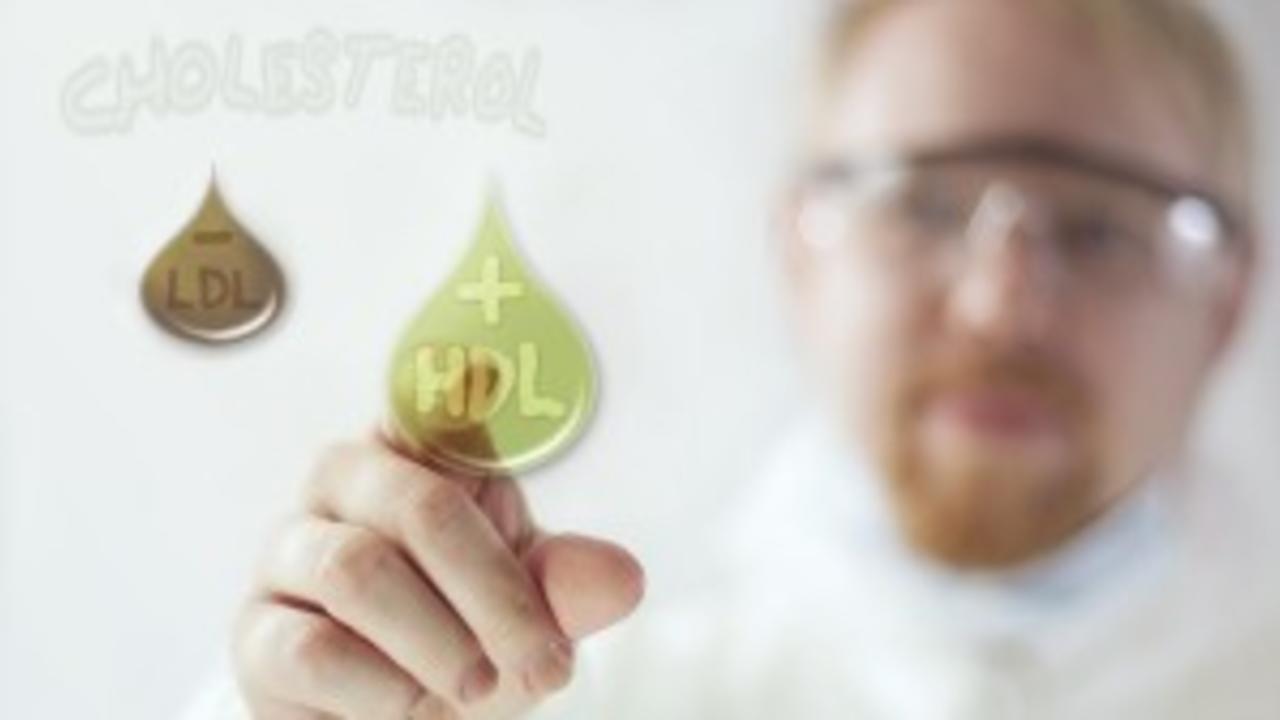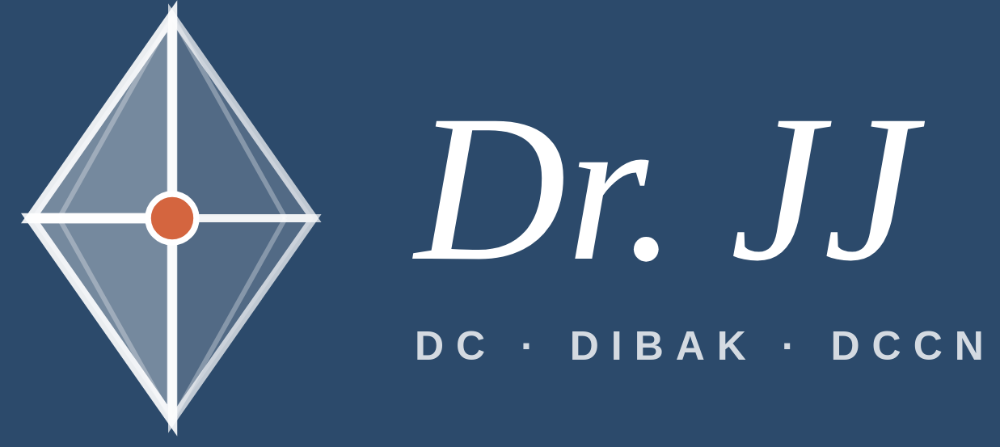Cholesterol

Educational Content Disclaimer: This article provides educational information only and is not intended as medical advice, diagnosis, or treatment. The content discusses general health topics and should not replace consultation with your licensed healthcare provider. Always consult with your doctor before making changes to your diet, supplements, or medications. Dr. JJ Gregor is a Doctor of Chiropractic licensed in Texas and practices within the scope of chiropractic care.
Your doctor tells you your cholesterol is high. You're confused. What does that even mean?
Is cholesterol bad? Is it good? Should you avoid it in food? Do you need medication?
The answers might surprise you.
Cholesterol isn't the villain you've been told it is. It's actually essential for life.
Here's what you need to know.
What Is Cholesterol?
Cholesterol is a waxy, fat-like substance found in every cell of your body.
It's not a fat (lipid), but it travels through your bloodstream attached to proteins called lipoproteins. This is why cholesterol testing measures lipoproteins like LDL and HDL.
About 75% of your cholesterol is produced by your liver. Only 25% comes from food.
This is important: your body makes cholesterol because you need it to survive.
Why Your Body Needs Cholesterol
Cholesterol isn't optional. It's essential for:
1. Building Cell Membranes
Every cell in your body has a membrane made partly from cholesterol. It provides structure and controls what enters and exits the cell.
Without cholesterol, your cells would be weak and dysfunctional.
2. Making Hormones
Cholesterol is the raw material for all steroid hormones:
- Testosterone
- Estrogen
- Progesterone
- Cortisol (stress hormone)
- Aldosterone (regulates blood pressure)
- DHEA (precursor to other hormones)
Low cholesterol can lead to hormonal imbalances, fatigue, low libido, and mood problems.
3. Producing Vitamin D
When sunlight hits your skin, cholesterol converts to vitamin D.
Vitamin D is critical for immune function, bone health, mood regulation, and disease prevention.
4. Creating Bile for Digestion
Your liver uses cholesterol to make bile acids. Bile breaks down fats and helps absorb fat-soluble vitamins (A, D, E, K).
Without adequate cholesterol, you can't digest fats properly or absorb essential nutrients.
5. Supporting Brain Function
Your brain contains 25% of your body's cholesterol despite being only 2% of your body weight.
Cholesterol insulates nerve cells (myelin sheath), supports memory, and maintains neurotransmitter function.
This is why low cholesterol is linked to depression, cognitive decline, and memory problems.
Types of Cholesterol: HDL vs. LDL
When you get a cholesterol test, you see several numbers. Here's what they mean:
Total Cholesterol
The sum of all cholesterol in your blood. This number alone doesn't tell you much about heart disease risk.
Many people with "high" total cholesterol are perfectly healthy. Many heart attack victims have "normal" total cholesterol.
LDL (Low-Density Lipoprotein)
Often called "bad cholesterol," but this is misleading.
LDL carries cholesterol from your liver to cells that need it. This is a normal, necessary process.
LDL only becomes a problem when it's oxidized by inflammation. Normal LDL is harmless.
HDL (High-Density Lipoprotein)
Called "good cholesterol" because it carries excess cholesterol back to your liver for disposal.
Higher HDL is generally protective. Low HDL (below 40 mg/dL for men, below 50 mg/dL for women) indicates metabolic dysfunction.
VLDL (Very Low-Density Lipoprotein)
Carries triglycerides (fats) from your liver to tissues. High VLDL usually means high triglycerides.
Triglycerides
Not cholesterol, but measured on the same panel. These are fats in your blood.
High triglycerides (above 150 mg/dL) indicate blood sugar problems, insulin resistance, or excessive carbohydrate/alcohol intake.
What Your Cholesterol Numbers Mean
Standard "healthy" ranges:
- Total Cholesterol: Below 200 mg/dL (but this number is mostly meaningless)
- LDL: Below 100 mg/dL (overly aggressive target)
- HDL: Above 40 mg/dL (men), above 50 mg/dL (women)
- Triglycerides: Below 150 mg/dL
But here's what actually matters more than total cholesterol or LDL:
Triglyceride:HDL Ratio
Divide your triglycerides by your HDL. This ratio predicts heart disease risk better than LDL or total cholesterol.
Ideal ratio: 2:1 or lower
Example: Triglycerides 100, HDL 50 = 2:1 ratio (good)
High ratios (above 3:1) indicate insulin resistance and increased cardiovascular risk.
LDL Particle Size
Not all LDL is the same. You can have:
- Large, fluffy LDL particles - Benign, protective
- Small, dense LDL particles - More likely to oxidize and cause problems
Standard cholesterol tests don't measure particle size. You need advanced testing (NMR LipoProfile or CardioIQ) to see this.
Does Dietary Cholesterol Raise Blood Cholesterol?
Not significantly.
For most people, eating cholesterol-rich foods (eggs, butter, red meat) has minimal impact on blood cholesterol levels.
Why? Because your liver regulates cholesterol production based on dietary intake.
When you eat more cholesterol, your liver makes less. When you eat less cholesterol, your liver makes more.
This is why the 2015 Dietary Guidelines finally removed the cholesterol restriction (300mg daily limit) after 40 years of warning people to avoid eggs and butter.
The science never supported it.
What Actually Raises "Bad" Cholesterol?
If dietary cholesterol doesn't raise blood cholesterol, what does?
1. Chronic Inflammation
When your body is inflamed, it produces more cholesterol to repair damage.
Sources of inflammation:
- Chronic stress
- High blood sugar and insulin resistance
- Industrial seed oils (canola, soybean, corn, vegetable oil)
- Inflammatory foods like wheat and grains
- Smoking
- Poor sleep
- Lack of movement
2. Insulin Resistance
High insulin from eating too much sugar and refined carbohydrates drives small, dense LDL particle production.
This is why people with diabetes or metabolic syndrome often have "bad" cholesterol patterns despite normal total cholesterol.
3. Oxidative Stress
Free radicals and lack of antioxidants cause LDL to oxidize. Oxidized LDL is what actually damages arteries.
Normal LDL doesn't cause problems. Oxidized LDL does.
When Should You Worry About Cholesterol?
High cholesterol by itself doesn't mean much.
What matters is:
- Inflammation levels (CRP, homocysteine)
- Insulin and blood sugar control (fasting insulin, HbA1c)
- Triglyceride:HDL ratio
- LDL particle size (small and dense vs. large and fluffy)
- Lipoprotein(a) - genetic marker for cardiovascular risk
You can have high total cholesterol and be metabolically healthy. You can have normal cholesterol and be at high risk for heart disease.
The number alone doesn't tell the story.
What About Cholesterol-Lowering Medications?
Statins (Lipitor, Crestor, Zocor) are the most commonly prescribed cholesterol-lowering drugs.
They work by blocking your liver's ability to produce cholesterol.
This lowers cholesterol numbers. But does it prevent heart disease or extend life?
The evidence is complicated. For most people, especially women and those without existing heart disease, statins show minimal benefit and significant side effects:
- Muscle pain and weakness
- Cognitive problems (brain fog, memory loss)
- Depletion of CoQ10 (critical for heart and muscle function)
- Hormonal dysfunction (cholesterol is needed to make hormones)
- Increased diabetes risk
For a deeper dive on whether cholesterol actually causes heart disease and what statins really do to your body, read: Cholesterol: The Myth That Won't Die.
How to Support Healthy Cholesterol Naturally
1. Reduce Inflammation
Address the root causes of high cholesterol:
- Manage chronic stress
- Balance blood sugar and insulin
- Eliminate industrial seed oils
- Get adequate sleep (7-9 hours)
- Move regularly (not excessively)
2. Eat Real Food
Focus on nutrient-dense, anti-inflammatory foods:
- Grass-fed meat, wild-caught fish, pastured eggs
- Leafy greens and non-starchy vegetables
- Healthy fats (olive oil, coconut oil, avocado, butter)
- Fermented foods
- Bone broth
Avoid:
- Industrial seed oils (canola, soybean, corn, vegetable oil)
- Sugar and refined carbohydrates
- Inflammatory grains
- Processed foods
For comprehensive nutrition strategies, visit the Fuel Your Body pillar page.
3. Support Your Liver
Your liver produces and regulates cholesterol. Support it with:
- Adequate protein (liver needs amino acids)
- B vitamins (especially B6, B12, folate)
- Antioxidants (vegetables, berries)
- Quality sleep
- Proper hydration
4. Test What Actually Matters
Ask your doctor for advanced testing:
- hs-CRP (measures inflammation)
- Homocysteine (measures arterial damage risk)
- Fasting insulin (measures insulin resistance)
- LDL particle size (not just LDL-C)
- Lipoprotein(a)
- Triglyceride:HDL ratio
These markers tell you far more about cardiovascular risk than total cholesterol ever could.
The Bottom Line
Cholesterol is essential for life. Your body makes it because you need it for hormones, brain function, cell structure, vitamin D production, and digestion.
High cholesterol by itself doesn't mean you're at risk for heart disease. What matters is inflammation, insulin resistance, oxidative stress, and the quality of your cholesterol particles.
Eating cholesterol-rich foods (eggs, butter, red meat) doesn't significantly raise blood cholesterol for most people. Your liver regulates production based on what you eat.
Focus on reducing inflammation through stress management, blood sugar control, quality sleep, and real food. Support your body's natural regulation systems rather than suppressing symptoms with medication.
If you want to understand why the mainstream advice on cholesterol is wrong and what actually causes heart disease, read: Cholesterol: The Myth That Won't Die.
Your cholesterol numbers are just one piece of a much larger metabolic picture.
Ready to optimize your health and performance? Dr. JJ Gregor uses Applied Kinesiology and functional health approaches to help patients achieve their wellness goals at his Frisco, Texas practice. Schedule a consultation to discover how nutrition, stress management, and lifestyle optimization can support your overall health.
Stay connected with news and updates!
Join our mailing list to receive the latest news and updates from our team.
Don't worry, your information will not be shared.

